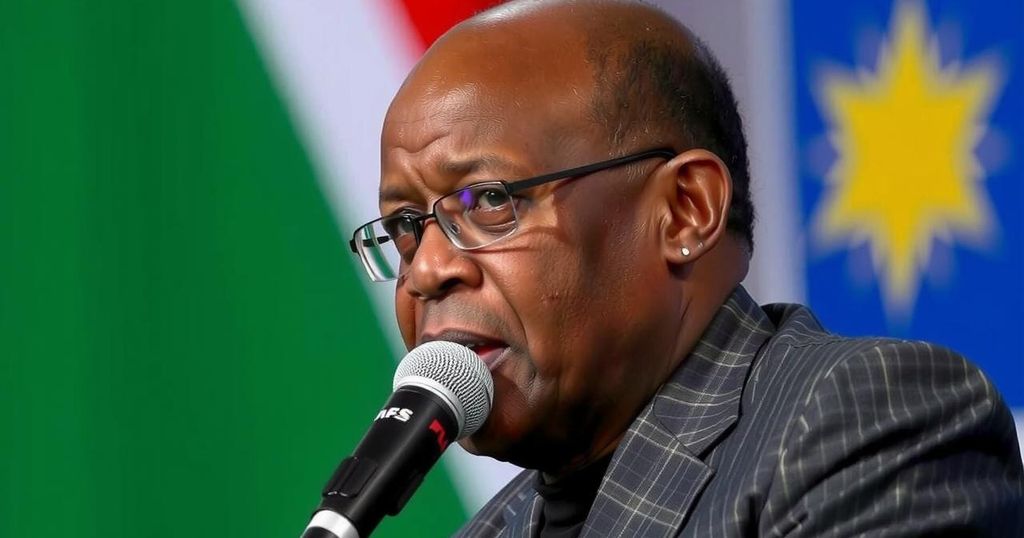Historic Shift in Botswana Politics as President Concedes Election

On November 1, 2024, Botswana President Mokgweetsi Masisi conceded defeat in elections that ended the ruling Botswana Democratic Party’s 58-year reign. Early results indicated the BDP placed fourth, with the opposition UDC leading, marking a significant political transition in the nation.
On November 1, 2024, President Mokgweetsi Masisi of Botswana acknowledged his defeat in the recent elections, thus marking the end of the Botswana Democratic Party’s (BDP) 58-year tenure in power. Preliminary election results indicate that the ruling party has fallen to fourth place, whereas the United Democratic Congress (UDC), the principal opposition party, has emerged as the leading force. This significant political shift in Botswana’s electoral landscape highlights the electorate’s desire for change and reflects a growing discontent with longstanding political governance in the country. In his concession speech, President Masisi expressed gratitude for his supporters and recognized the will of the electorate, paving the way for a new chapter in Botswana’s governance.
The Botswana Democratic Party has dominated Botswana’s political arena since the country achieved independence in 1966. Over the years, this prolonged rule has fostered both political stability and criticisms regarding governance practices. The recent elections have been pivotal, as they not only tested the ruling party’s endurance but also brought to light the citizens’ readiness for alternative leadership. As the BDP faces this historic defeat, the ramifications are poised to influence future political dynamics within Botswana and potentially reshape its national policies moving forward.
The concession of President Mokgweetsi Masisi signifies a momentous turning point in Botswana’s political history. The shift in power following 58 years of BDP rule illustrates a profound change in the political sentiments of the populace, as they seek new governance approaches. This event may herald a transformative era for Botswana, as the new leadership under the UDC has the potential to reshape both domestic and foreign policies. The electoral outcome emphasizes the importance of responsive governance and the electorate’s power in a democratic society.
Original Source: www.aljazeera.com








